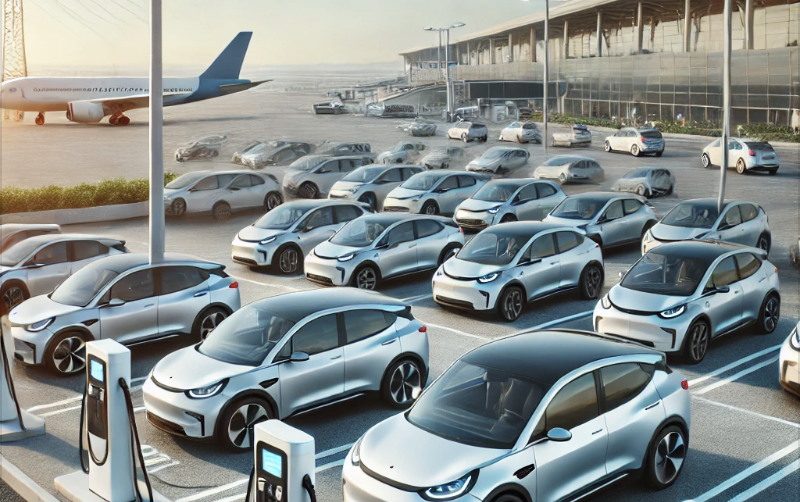Fiji Airports has solidified its position as a leader in the region’s green mobility initiative by becoming the largest owner of electric vehicles (EVs) in the Pacific. With the recent acquisition of nine new electric vehicles, the company now operates a fleet of 22 EVs, an achievement that reflects its ongoing commitment to reducing carbon emissions and supporting sustainable transportation solutions.
Mesake Nawari, Chief Executive of Fiji Airports, highlighted the significance of this transition. He pointed out that the shift toward electric mobility is gaining momentum globally, especially in sectors like aviation, which are known to contribute substantially to carbon emissions. Nawari explained that by adopting electric vehicles, Fiji Airports is playing its part in the global effort to combat climate change while also setting an example for other industries in the region.
This move aligns with Fiji’s broader commitment to renewable energy and reducing its carbon footprint. In recent years, the country has implemented several initiatives to support sustainable energy use and reduce dependence on fossil fuels. The electric vehicle fleet at Fiji Airports is part of this broader strategy, complementing other renewable energy projects and promoting green infrastructure development across the country. In fact, Fiji’s government has been vocal about its ambitions to achieve net-zero emissions by 2050, and the expansion of electric vehicle use is a crucial element of that plan.
Beyond Fiji Airports, the government has made efforts to encourage the adoption of electric vehicles through policy incentives and infrastructure development. The construction of EV charging stations in major urban centres, including Nadi and Suva, demonstrates the government’s commitment to creating a supportive ecosystem for electric mobility.
Additionally, electric vehicle adoption is on the rise among other Fijian businesses and government sectors, reflecting a nationwide shift toward more sustainable practices. The focus on electric vehicles is also expected to extend beyond public transportation and airports, potentially influencing the private sector as Fiji strengthens its green energy transition.
Fiji is steadily expanding its electric vehicle (EV) infrastructure. As of 2024, Fiji has several EV charging stations across major areas, with networks like The Switch Network actively rolling out more stations. There are currently about 5 to 7 charging stations in key locations such as Suva, Nadi, and Sigatoka, with plans to increase the number of stations to 15 to 20 in the near future. These charging points are a mix of standard and fast chargers, some of which are powered by solar energy, further aligning with the country’s goals of carbon neutrality by 2050.
The Switch Network, a key player in this initiative, is working to create an integrated green mobility ecosystem in Fiji. In addition to public charging hubs, they are also developing solutions for home and business use, ensuring accessibility across different parts of the country. The first public charging station was launched at the Kundan Singh Supermarket in Suva, and several more are under construction, including ones at Fiji National University and Maui Bay.
—
The main image in this story is an ai-generated impression and is not an actual representation of the cars or the facility.



